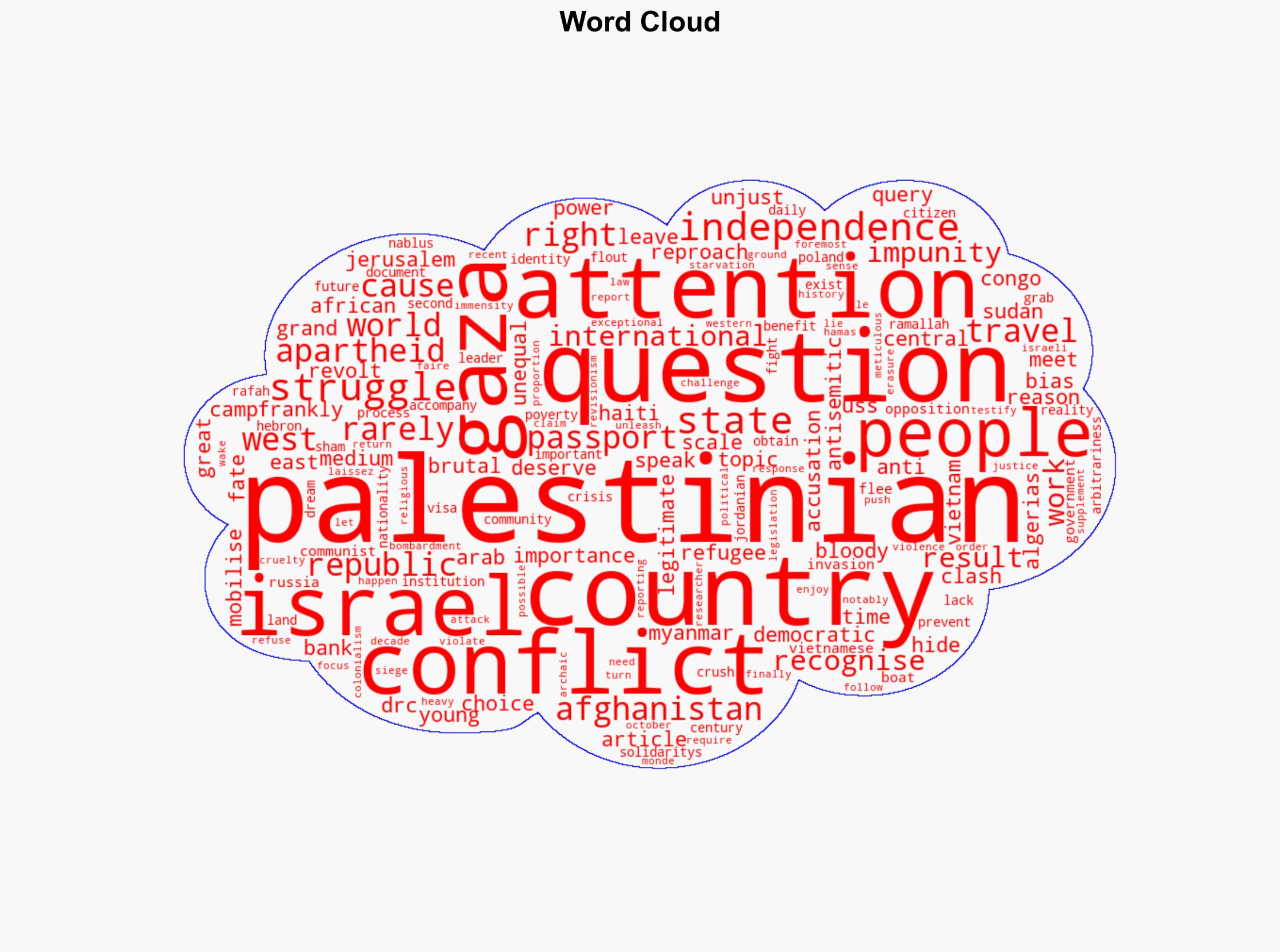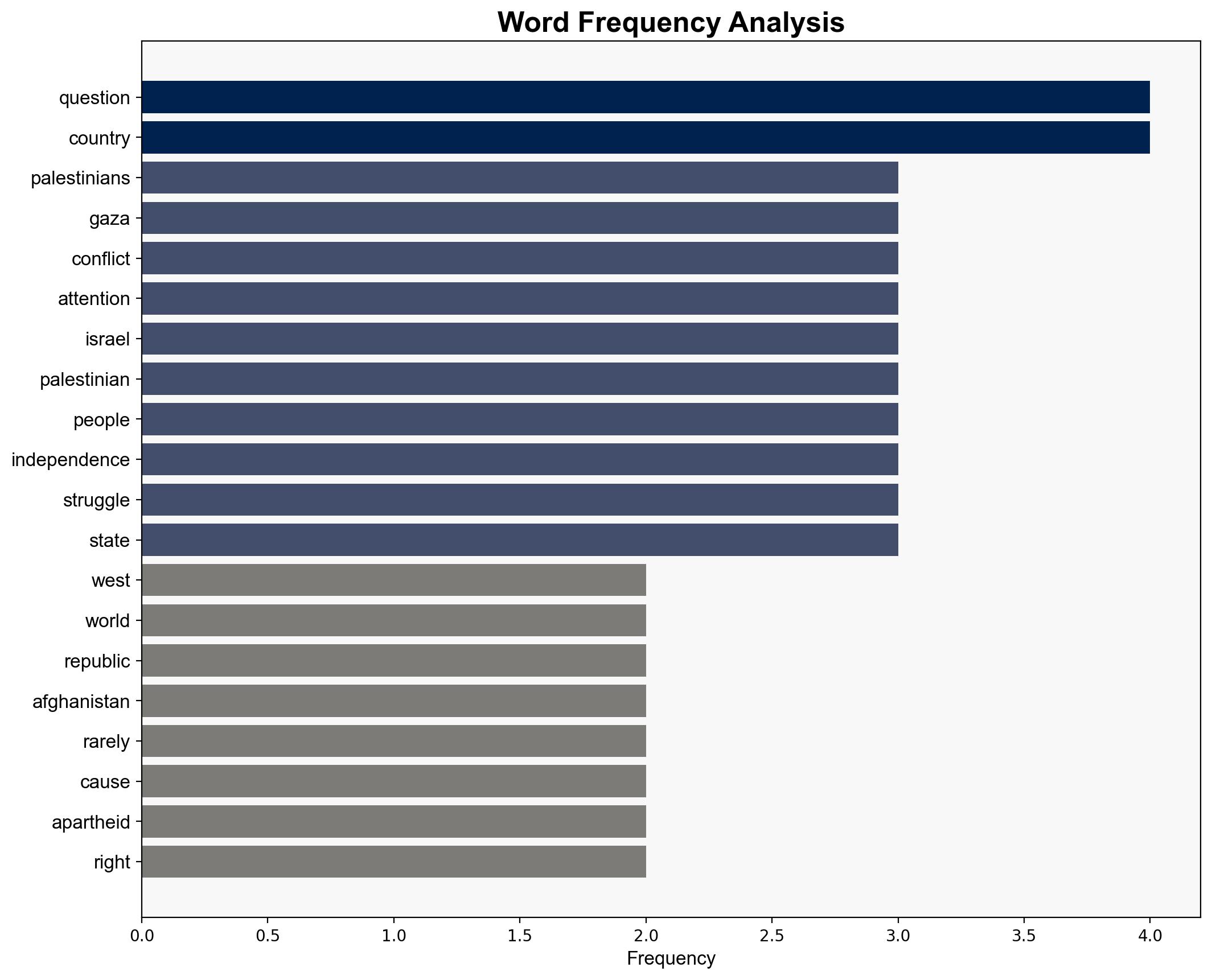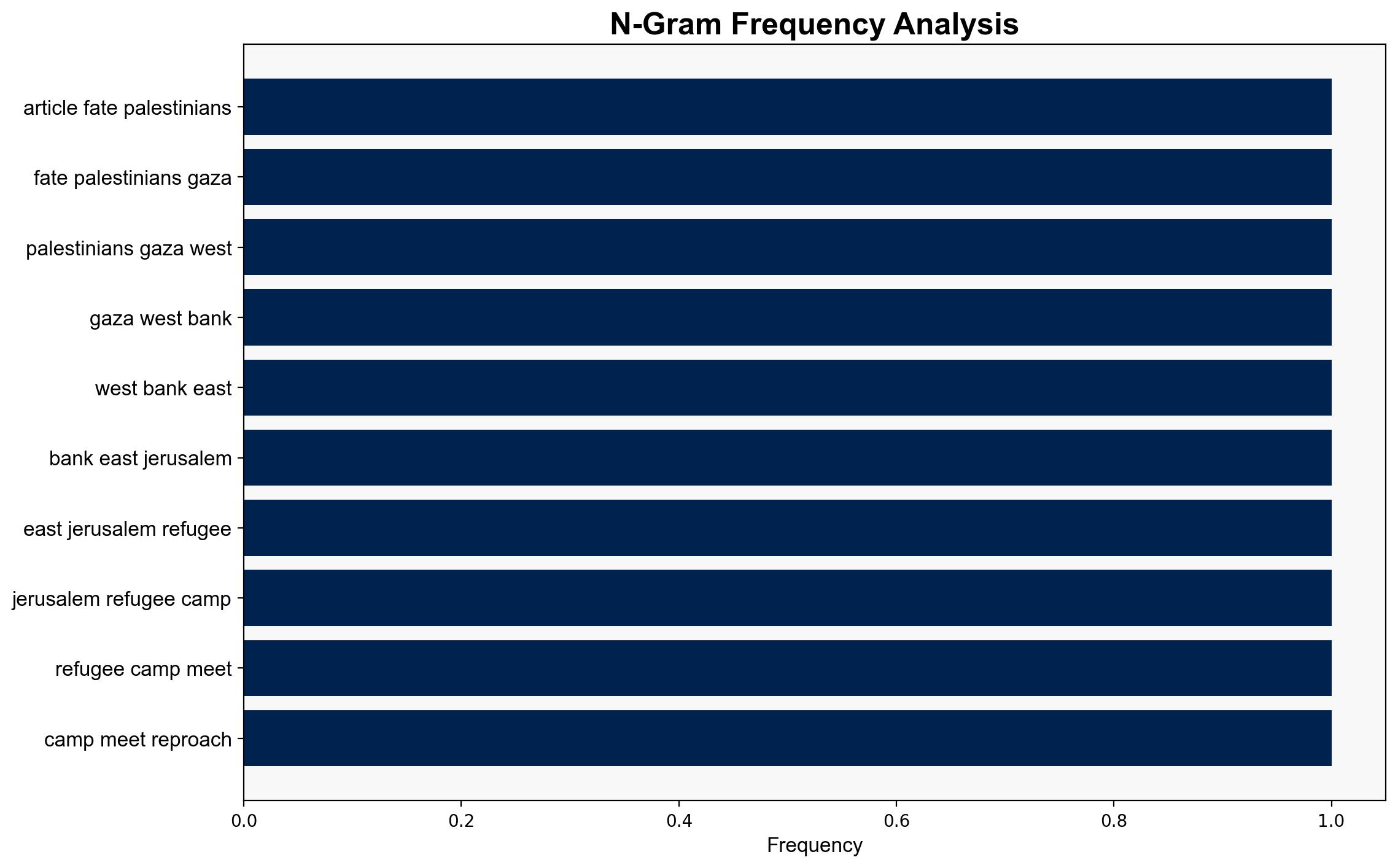Why Gaza – Mondediplo.com
Published on: 2025-07-01
Intelligence Report: Why Gaza – Mondediplo.com
1. BLUF (Bottom Line Up Front)
The article from Mondediplo.com highlights the ongoing conflict in Gaza and its implications on regional stability. It underscores the persistent struggle for Palestinian statehood and the international community’s response to Israeli actions. The report identifies the need for a balanced approach to address humanitarian concerns and geopolitical dynamics. Key recommendations include fostering diplomatic engagement and addressing underlying grievances to prevent further escalation.
2. Detailed Analysis
The following structured analytic techniques have been applied to ensure methodological consistency:
Causal Layered Analysis (CLA)
The surface events include recent escalations in Gaza, characterized by military actions and humanitarian crises. Systemic structures reveal entrenched political and territorial disputes. Worldviews are shaped by historical narratives of injustice and resistance. Myths perpetuate the notion of an unresolvable conflict, complicating peace efforts.
Cross-Impact Simulation
The conflict in Gaza has ripple effects on neighboring states, potentially destabilizing the region. Economic dependencies, such as trade routes and aid flows, are disrupted, affecting regional economies and international relations.
Scenario Generation
Potential futures include a negotiated settlement leading to a two-state solution, continued stalemate with periodic escalations, or a broader regional conflict involving external powers. Each scenario carries distinct implications for international security and humanitarian conditions.
Cognitive Bias Stress Test
Biases in assessments are challenged by considering alternative perspectives, such as the humanitarian impact on civilians and the long-term viability of current strategies. This approach ensures a comprehensive understanding of the conflict’s dynamics.
3. Implications and Strategic Risks
The ongoing conflict poses significant risks, including potential escalation into a wider regional war, increased radicalization, and humanitarian crises. Political instability may lead to shifts in alliances and increased influence of non-state actors. Cyber threats and economic disruptions are additional concerns, with potential global repercussions.
4. Recommendations and Outlook
- Enhance diplomatic efforts to mediate a ceasefire and initiate peace talks, focusing on addressing core grievances.
- Increase humanitarian aid to alleviate the immediate suffering of civilians and support reconstruction efforts.
- Monitor regional developments closely to anticipate and mitigate potential spillover effects.
- Scenario-based projections:
- Best case: Successful peace negotiations lead to a sustainable resolution.
- Worst case: Escalation into a broader conflict involving multiple regional actors.
- Most likely: Continued cycles of violence and temporary ceasefires without a long-term solution.
5. Key Individuals and Entities
The report does not specify individuals by name due to the focus on broader strategic analysis. However, key entities include the governments of Israel and Palestine, regional actors, and international organizations involved in mediation efforts.
6. Thematic Tags
national security threats, regional stability, humanitarian crisis, geopolitical dynamics




